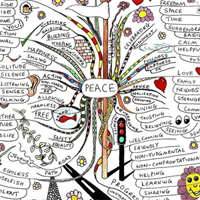Het arrangement Thema Being in love- hv3 is gemaakt met Wikiwijs van Kennisnet. Wikiwijs is hét onderwijsplatform waar je leermiddelen zoekt, maakt en deelt.
- Auteur
- Laatst gewijzigd
- 24-06-2025 20:09:05
- Licentie
-
Dit lesmateriaal is gepubliceerd onder de Creative Commons Naamsvermelding-GelijkDelen 4.0 Internationale licentie. Dit houdt in dat je onder de voorwaarde van naamsvermelding en publicatie onder dezelfde licentie vrij bent om:
- het werk te delen - te kopiëren, te verspreiden en door te geven via elk medium of bestandsformaat
- het werk te bewerken - te remixen, te veranderen en afgeleide werken te maken
- voor alle doeleinden, inclusief commerciële doeleinden.
Meer informatie over de CC Naamsvermelding-GelijkDelen 4.0 Internationale licentie.
Aanvullende informatie over dit lesmateriaal
Van dit lesmateriaal is de volgende aanvullende informatie beschikbaar:
- Toelichting
- Dit thema valt onder de arrangeerbare leerlijn van de Stercollecties voor Engels voor havo en vwo, leerjaar 3. Dit is thema 2 'Being in love'. In deze les gaat het over verliefd zijn; wat is het, hoe voelt het en wat doe je als je verliefd bent? Het thema omvat de volgende onderwerpen: Infatuation, Falling in love, Trouble in paradise en My funny valentine. De grammaticaopdrachten gaan over 'future tenses'.
- Leerniveau
- HAVO 3; VWO 3;
- Leerinhoud en doelen
- Engels;
- Eindgebruiker
- leerling/student
- Moeilijkheidsgraad
- gemiddeld
- Studiebelasting
- 9 uur 30 minuten
- Trefwoorden
- arrangeerbaar, being in love, engels, falling in love, future tenses, hv3, infatuation, my funny valentine, stercollectie, trouble in paradise
Gebruikte Wikiwijs Arrangementen
VO-content - Gereedschapskist. (2019).
Gereedschapskist activerende werkvormen
https://maken.wikiwijs.nl/105906/Gereedschapskist_activerende_werkvormen
VO-content - Toetsen. (z.d.).
Engels Eindtoetsen vmbo-kgt34
https://maken.wikiwijs.nl/157914/Engels_Eindtoetsen_vmbo_kgt34
VO-content Engels. (2020).
Thema Being in love- kgt34
VO-content Engels. (2020).
Thema Going out - kgt34

 Welcome to the next theme of English
Welcome to the next theme of English


 In this theme you will focus on the following 'can do' statements.
In this theme you will focus on the following 'can do' statements.
 Below are the four lessons that belong to this topic.
Below are the four lessons that belong to this topic.

 Friendship
Friendship
 Bestfriends or lovers?
Bestfriends or lovers? Guide to dating
Guide to dating
 You started this theme you with a test in the section Need to know.
You started this theme you with a test in the section Need to know.